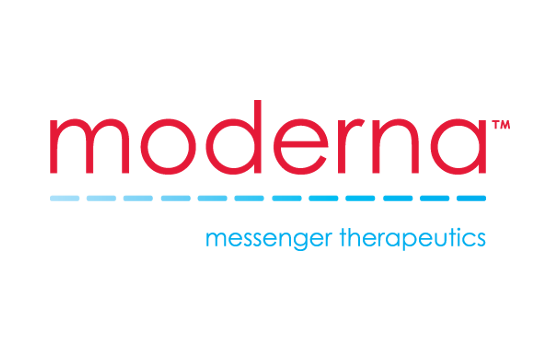 Moderna Inc. (Nasdaq: MRNA), a biotechnology company pioneering messenger RNA (mRNA) therapeutics and vaccines to create a new generation of transformative medicines for patients, today announced that the first adolescent participants have been dosed in the Phase 2/3 study of mRNA-1273, the Company’s vaccine candidate against COVID-19, in adolescents ages 12 to less than 18. The study is being conducted in collaboration with the Biomedical Advanced Research and Development Authority (BARDA), part of the Office of the Assistant Secretary for Preparedness and Response at the U.S. Department of Health and Human Services.
Moderna Inc. (Nasdaq: MRNA), a biotechnology company pioneering messenger RNA (mRNA) therapeutics and vaccines to create a new generation of transformative medicines for patients, today announced that the first adolescent participants have been dosed in the Phase 2/3 study of mRNA-1273, the Company’s vaccine candidate against COVID-19, in adolescents ages 12 to less than 18. The study is being conducted in collaboration with the Biomedical Advanced Research and Development Authority (BARDA), part of the Office of the Assistant Secretary for Preparedness and Response at the U.S. Department of Health and Human Services.
"We are pleased to begin this Phase 2/3 study of mRNA-1273 in healthy adolescents in the U.S. Our goal is to generate data in the spring of 2021 that will support the use of mRNA-1273 in adolescents in advance of the 2021 school year," said Stéphane Bancel, Chief Executive Officer of Moderna. "We are encouraged by the interim and primary analyses of the Phase 3 COVE study in adults ages 18 and above and this adolescent study will help us assess the potential safety and immunogenicity of our COVID-19 vaccine candidate in this important younger age population. We hope we will be able to provide a safe vaccine to provide protection to adolescents so they can return to school in a normal setting."
This randomized, controlled Phase 2/3 study will evaluate the safety, reactogenicity and immunogenicity of two vaccinations of mRNA-1273 given 28 days apart. The Company intends to enroll 3,000 adolescent participants in the U.S. ages 12 to less than 18 years. Each participant will be assigned to receive a placebo or a 100 μg dose at both vaccinations. Participants will be followed through 12 months after the second vaccination. Vaccine effectiveness will either be inferred through achieving a correlate of protection (if established) or through immunobridging to the adult population. Evaluation of vaccine safety and reactogenicity is also a primary endpoint of the study. The ClinicalTrials.gov identifier is NCT04649151.
About mRNA-1273
mRNA-1273 is an mRNA vaccine against COVID-19 encoding for a prefusion stabilized form of the Spike (S) protein, which was co-developed by Moderna and investigators from NIAID’s Vaccine Research Center. The first clinical batch, which was funded by the Coalition for Epidemic Preparedness Innovations, was completed on February 7, 2020 and underwent analytical testing; it was shipped to the NIH on February 24, 42 days from sequence selection. The first participant in the NIAID-led Phase 1 study of mRNA-1273 was dosed on March 16, 63 days from sequence selection to Phase 1 study dosing. On May 12, the FDA granted mRNA-1273 Fast Track designation. On May 29, the first participants in each age cohort: adults ages 18-55 years (n=300) and older adults ages 55 years and above (n=300) were dosed in the Phase 2 study of mRNA-1273. On July 8, the Phase 2 study completed enrollment.Results from the second interim analysis of the NIH-led Phase 1 study of mRNA-1273 in the 56-70 and 71+ age groups were published on September 29 in The New England Journal of Medicine. On July 28, results from a non-human primate preclinical viral challenge study evaluating mRNA-1273 were published in The New England Journal of Medicine. On July 14, an interim analysis of the original cohorts in the NIH-led Phase 1 study of mRNA-1273 was published in The New England Journal of Medicine. mRNA-1273 currently is not approved for use by any regulatory body.
BARDA is supporting the continued research and development of mRNA-1273 with $955 million in federal funding under Contract no. 75A50120C00034. BARDA is reimbursing Moderna for 100 percent of the allowable costs incurred by the Company for conducting the program described in the BARDA contract. The U.S. government has agreed to provide up to $1.525 billion to purchase supply of mRNA-1273 under U.S. Department of Defense Contract No. W911QY-20-C-0100.
About Moderna
Moderna is advancing messenger RNA (mRNA) science to create a new class of transformative medicines for patients. mRNA medicines are designed to direct the body’s cells to produce intracellular, membrane or secreted proteins that can have a therapeutic or preventive benefit and have the potential to address a broad spectrum of diseases. The company’s platform builds on continuous advances in basic and applied mRNA science, delivery technology and manufacturing, providing Moderna the capability to pursue in parallel a robust pipeline of new development candidates. Moderna is developing therapeutics and vaccines for infectious diseases, immuno-oncology, rare diseases, cardiovascular diseases, and autoimmune and inflammatory diseases, independently and with strategic collaborators.Headquartered in Cambridge, Mass., Moderna currently has strategic alliances for development programs with AstraZeneca PLC and Merck & Co., Inc., as well as the Defense Advanced Research Projects Agency (DARPA), an agency of the U.S. Department of Defense, and BARDA. Moderna has been named a top biopharmaceutical employer by Science for the past six years.